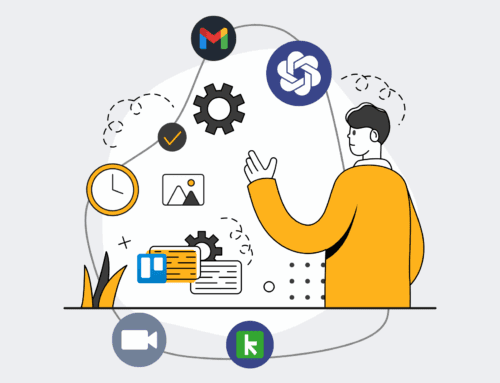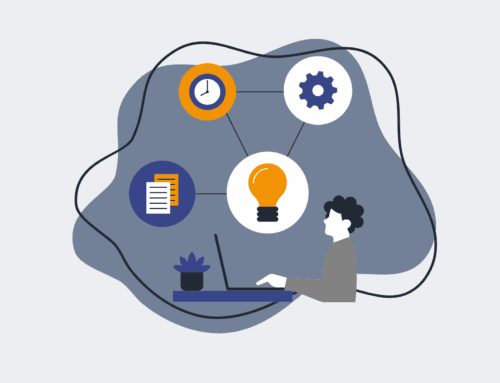The Role of Sandbox Environments in Keap Restore Testing: Ensuring Data Integrity and Operational Continuity
In the fast-paced world of business, data is the lifeblood of operations, and a robust CRM like Keap is often at its heart. For HR and recruiting teams, the data held within Keap – candidate profiles, hiring stages, communication logs – is invaluable. However, reliance on any digital system comes with inherent risks, one of the most significant being data loss or corruption. This isn’t a theoretical concern; accidental deletions, erroneous imports, or system misconfigurations can lead to critical data gaps. This is precisely where the strategic implementation of sandbox environments for Keap restore testing becomes not just beneficial, but absolutely essential for maintaining data integrity and ensuring operational continuity.
Why Proactive Keap Restore Testing is Non-Negotiable for Business Leaders
Many organizations understand the importance of data backups but often overlook the crucial step of verifying those backups through regular restoration tests. The adage “a backup is only as good as its restore” holds especially true for critical systems like Keap. Without testing, you’re merely hoping your data is recoverable, rather than knowing it is. For HR and recruiting departments, the stakes are incredibly high: a corrupted Keap database could mean lost candidate applications, mismanaged employee records, or a complete halt in hiring processes. This directly impacts talent acquisition, compliance, and ultimately, the bottom line. Our experience at 4Spot Consulting has consistently shown that proactive testing in a controlled sandbox environment mitigates these risks, turning potential crises into manageable events.
Understanding the Sandbox Environment: Your Digital Staging Ground
A sandbox environment is an isolated testing space that mirrors your live Keap production environment without affecting actual operational data. Think of it as a secure playground where you can experiment, troubleshoot, and, most importantly, test your data restoration protocols without fear of disrupting your real-time business processes. For Keap users, this means replicating your CRM data and structure into a separate, non-production instance. This isolated setup allows you to:
- Perform full data restores from various backup points.
- Verify the integrity and completeness of the restored data.
- Test recovery procedures and validate their effectiveness.
- Train staff on restore processes without risk.
- Identify potential issues or conflicts before they impact your live system.
This strategic approach allows business leaders to assess the actual time and resources required for a full recovery, providing realistic recovery time objectives (RTOs) and recovery point objectives (RPOs) rather than optimistic guesses.
Key Benefits of Integrating Sandbox Testing into Your Data Strategy
Beyond simply confirming that data can be restored, sandbox environments offer a multitude of strategic advantages for organizations utilizing Keap:
Mitigating Human Error and Accidental Data Loss
One of the most common causes of data issues isn’t malicious intent but simple human error. An employee might accidentally delete a vital contact segment, overwrite critical custom fields during an import, or misconfigure an automation that inadvertently purges data. In a sandbox, these scenarios can be simulated and recovered from, allowing for lessons learned without real-world consequences. This reinforces robust data governance and reduces reliance on reactive firefighting.
Ensuring Business Continuity During Critical Periods
Imagine a scenario where Keap data becomes inaccessible or corrupted during a major hiring push or an HR audit. The ability to quickly and reliably restore your system to a functional state is paramount. Sandbox testing ensures that when disaster strikes, your team can execute a proven, rehearsed recovery plan, minimizing downtime and maintaining productivity. This strategic foresight directly contributes to resilience and uninterrupted operations.
Validating System Migrations and Integrations
Keap often sits at the center of a broader tech stack, integrating with tools like Make.com for advanced automation, applicant tracking systems, or even document management platforms. When considering updates, migrations, or new integrations, testing these changes within a sandbox environment before deploying to production is crucial. This allows you to verify that data flows correctly post-restore and that all connected systems function as expected, preventing costly post-launch issues.
Compliance and Audit Readiness
For industries with strict data retention and recovery compliance requirements, demonstrating a verified data restoration capability is often a necessity. Regular sandbox testing provides documented proof that your organization can recover critical data, supporting audit readiness and showcasing due diligence in data management. This level of preparation protects your organization from potential regulatory penalties and reputational damage.
Implementing a Robust Keap Sandbox Testing Strategy
At 4Spot Consulting, we advocate for a structured approach to Keap data management and recovery. Our OpsMap™ framework helps organizations identify vulnerabilities and build proactive solutions. When it comes to sandbox testing, this means:
- **Regular Backups:** Implement automated, verified Keap backups.
- **Dedicated Sandbox:** Maintain a separate, non-production Keap instance.
- **Scheduled Restores:** Periodically restore a full backup into the sandbox.
- **Data Verification:** Implement checks to ensure data completeness and accuracy post-restore.
- **Documentation & Training:** Document all restore procedures and train relevant personnel.
- **Continuous Improvement:** Learn from each test, refine processes, and adapt to system changes.
The investment in a sandbox environment and dedicated testing protocols pales in comparison to the potential costs associated with irreversible data loss or prolonged operational disruptions. It’s a strategic move that underpins the reliability and scalability of your entire Keap ecosystem, safeguarding your most valuable asset: your data.
If you would like to read more, we recommend this article: Ensure Keap Contact Restore Success: A Guide for HR & Recruiting Data Integrity









